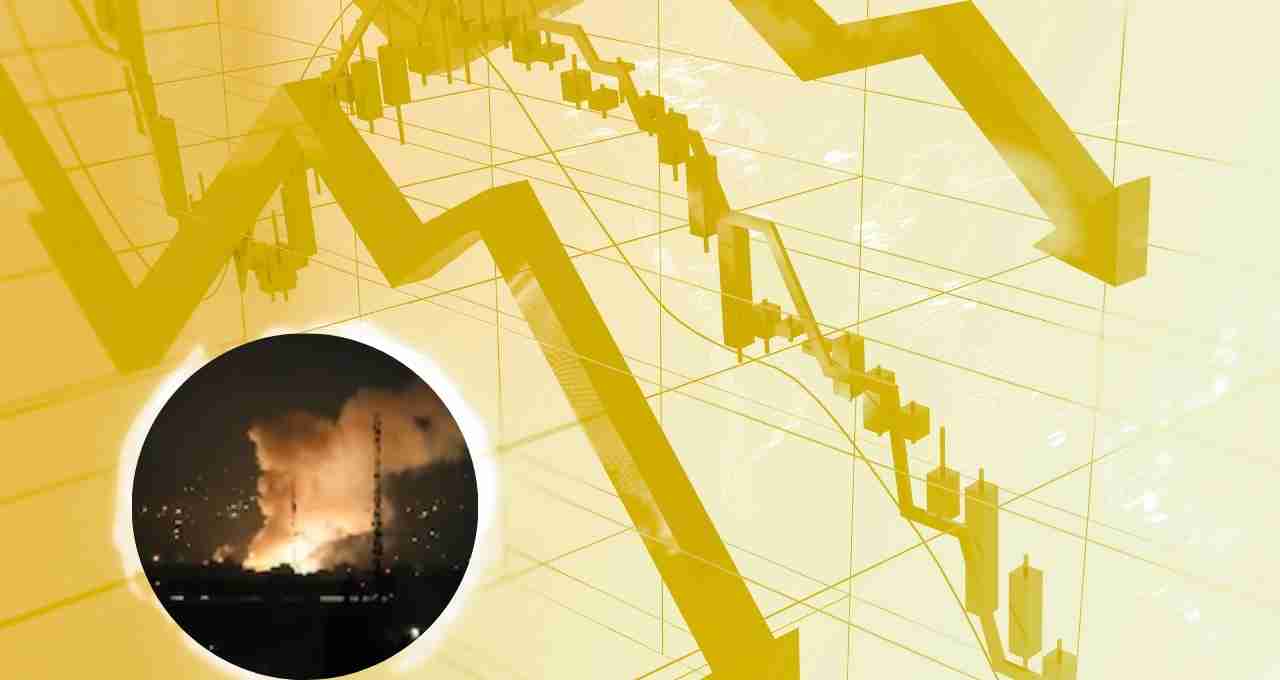Escalating military conflict between Iran and Israel, with the active involvement of the United States, has pushed geopolitical tensions in the Middle East to a critical point. This turmoil is directly impacting the Indian stock market.
On June 23, 2025, the Indian stock market began the week with a significant downturn. The ongoing conflict between Iran and Israel in West Asia, further intensified by US intervention, has deepened geopolitical anxieties. Reports of US bombing raids and the resulting uncertainty in global markets severely impacted Indian investor sentiment. Both the Sensex and Nifty indices opened in the red, while the rupee also depreciated.
Market Opens with Sharp Decline
When the Indian markets opened Monday morning, the Bombay Stock Exchange's Sensex plunged by approximately 700 points within the first hour. The Nifty also opened lower at 24,929.50, down 182.90 points from its previous close. This decline reflects not only the escalating tensions between the US and Iran but also growing investor apprehension about further deterioration of the situation.
While Friday had witnessed encouraging market performance, with the Sensex closing at 82,408.17, up 1,046.30 points, and the Nifty surging 319.15 points to 25,112.40, the geopolitical developments over the weekend completely reversed the trend.
US Bombing Heightens Investor Concerns

According to Dr. V.K. Vijay Kumar, Chief Investment Strategist at Geojit Investment Limited, the US bombing of three Iranian nuclear facilities has exacerbated the situation in West Asia. Although domestic economic indicators currently appear stable, market sensitivity reacts swiftly to such events.
Dr. Kumar believes the current decline is only partial and could be more widespread if geopolitical tensions escalate further. Market volatility is likely to persist until peace is restored in the region.
Rupee Depreciates, Foreign Investors Cautious
The impact of this tension is evident not only in the stock market but also on the Indian Rupee. On Monday, the rupee opened 17 paise weaker at 86.76, compared to Friday's close of 86.59. Foreign investor selling and dollar strengthening have weakened the rupee.
Currency experts suggest that during international conflicts or tensions, investors flock towards safe-haven assets like the dollar, putting pressure on emerging market currencies. This explains the current weakening of the rupee.
IT and Metal Sectors Bear the Brunt
Monday's stock market decline significantly affected the IT, metal, and auto sectors. Infosys shares, in particular, saw a two percent drop, indicating dwindling investor confidence in the IT sector. Uncertainty about global demand and dollar strengthening have increased pressure on IT companies.
The pressure on the metal sector is primarily due to rising crude oil prices and global supply chain disruptions. The Iran-US confrontation raises concerns about a surge in crude oil prices, potentially increasing costs for the metal and auto sectors.
Market Analyst Perspectives

Ajit Mishra, Chief Vice President at Religare Broking Limited, believes this week could be crucial for the Indian stock market. Market direction will depend on global indicators, including the progress of the Iran-Israel conflict, US economic data, and statements from the Federal Reserve.
Siddhartha Khemka, Head of Research at Motilal Oswal Financial Services, advises investors to remain cautious. He anticipates that upcoming US services and manufacturing PMI data, the movement of the dollar index, and oil prices will determine the market's direction.
Advice for Investors
Experts advise investors to stick to their long-term strategies. The market decline can be viewed as an opportunity, but investments should be limited to fundamentally b companies with stable earnings.
For small investors, this is a time to exercise caution and make informed decisions. Market fluctuations are natural, but the current global crisis could exacerbate them. Hasty decisions or investments based on rumors can be detrimental.
International Outlook
Geopolitical analysts warn that escalating tensions between the US and Iran will impact global markets, and India will not be immune. India's dependence on oil imports and trade volatility could increase pressure on the domestic economy.
Rising oil prices could fuel inflation, impacting the Reserve Bank's monetary policy and potentially leading to changes in interest rates in the future.














